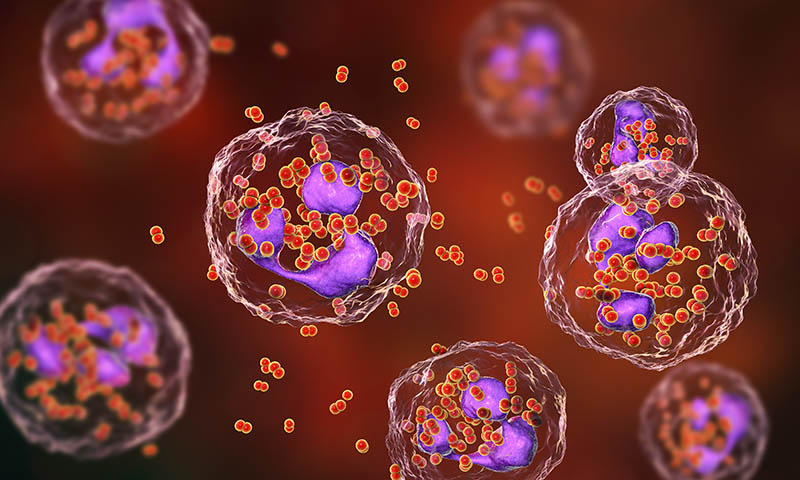
Everyday Chemicals Are Screwing Up Your Testosterone
You may have already read my other article on 7 habits which are killing your testosterone. There was a section in that on Water because

It’s not as glamorous as building muscle or improving performance, but fighting inflammation can mean a better overall quality of health and lifestyle.
Inflammation is the body’s response to physical stress, injury, and certain diseases. Short-term inflammation is healthy and a necessary part of the healing process.
But long-term or chronic inflammation is one the primary reasons that chronic diseases develop and get worse. For example, cardiovascular disease, Alzheimer’s, and type-II diabetes are inflammation-based diseases.
An anti-inflammatory diet can significantly reduce your risk of developing these diseases while providing a laundry list of other benefits.
Let’s take a look at some of the best anti-inflammatory foods and supplements.
The United States Department of Agriculture recommends eating between six to eight servings of vegetables each day. Here are a few vegetables with anti-inflammatory benefits.
With an emphasis on dark leafy greens such as kale and broccoli, cruciferous veggies contain an antioxidant called sulforaphane. Studies show that this antioxidant can successfully reduce inflammation. (1)
A recommended serving of cruciferous vegetables is three cups. Try to mix it up between broccoli, cauliflower, kale, and spinach.
Mushrooms contain antioxidants and phytonutrients like flavonoids, phenolics, and polysaccharides, which have all been shown in studies to promote anti-inflammatory benefits. (2)
A recommended serving of mushrooms is one cup, if eaten raw, or ½ cup, if you cook them. Keep in mind that cooking mushrooms will decrease their anti-inflammatory benefit. I recommend eating them raw or lightly steamed.
Garlic contains diallyl disulfide, and studies show that it can reduce inflammation by decreasing cytokines, compounds known for causing an inflammatory response. (3)
I recommend eating one clove of garlic per day, preferably raw. If you want to skip the garlic breath, cut up the clove and swallow it like a pill.
Learn more about the health benefits of garlic.
Beetroot is one of the most beloved supplements by endurance athletes both for its ability to increase nitric oxide production (blood flow) as well as lower inflammation which for an endurance athlete is a big deal.
Beetroot gets its vibrant color due to being rich in a special antioxidant known as “betalain” which has been researched for its incredible anti-inflammatory properties. (4)
Learn more about the health benefits of beetroot.
Asparagus is rich is several antioxidants including glutathione which has been labeled by many scientist as a “master antioxidant” for its ability to reduce oxidative stress.
It has also been shown to help improve sleep and promote more youthful skin.
Learn more about asparagus and glutathione.
The USDA also recommends eating between two to three servings of low-sugar fruits each day. Here are a few healthy fruits with anti-inflammatory benefits.
With a high antioxidant profile, studies show that ellagic acid can promote anti-inflammatory activities in the gut. (5)
While this study used pomegranate juice, I’d recommend eating one cup of the actual arils (seeds) to avoid excessive levels of sugar.
The same compound that gives berries their color is also responsible for helping you fight inflammation. Berries contain polyphenol compounds, but the one we’re focusing on is called anthocyanins. Studies show that anthocyanins have an anti-inflammatory effect. (6)
A recommended serving size of berries is a half-cup. I’d recommend lower-sugar options such as blueberries or raspberries.
A rich source of healthy fatty acids, avocados also contain a natural sugar called AV119. Studies show that AV119 possesses anti-inflammatory properties. It can block NF-kB activation, which is responsible for the inflammation response. (7)
A recommended serving is between a half to one whole avocado. If you’re going to eat a whole avocado, try to have half earlier in the day and the other half hours later.
Avocados also made my list of best natural testosterone boosters.
While the bulk of your diet should be focused on whole food choices, supplements are a great way to bridge nutritional gaps and complement the anti-inflammatory effect of the foods above.
CBD Oil can actually inhibit the body’s inflammatory response by suppressing inflammatory cytokines and chemokines which are small proteins important for cell signalling . (8)
While more human case studies are needed, CBD Oil has been rapidly rising in use with professional athletes because it works so well.
Use of CBD Oil is currently allowed for PGA and professional tennis players but banned in the NFL. However, several groups are working to legalize CBD in the NFL and former Patriots star tight end Rob Gronkowski actually said he would un-retire if the NFL permits its use.
There is no “high” associated with CBD Oil use as the THC (the active compound which causes a marijuana high) must meet a federal requirement of no more than 0.3%.
This is such a small amount that it will not get you intoxicated nor will it show up on a drug screening.
Learn more about the health benefits of CBD Oil
One of the most well documented benefits of MSM is its ability to reduce joint pain. It has been shown to help ease both knee and back pain in runners as well as improving movement for the average person’s day to day activities. (9, 10)
Learn more about the health benefits of MSM.
Turmeric is well regarded for its great anti-inflammatory benefits due in large part to a unique compound called curcumin.
However, curcumin only makes up about 3% of turmeric’s property by weight and turmeric is not well absorbed by the body.
Studies have shown that taking bioperine along with turmeric can greatly enhance absorption, however the best way to ensure maximum absorption is to take a liposomal based turmeric or curcumin supplement.
Grape seeds have a special antioxidant compound called oligomeric proanthocyanidin complexes or OPC which has been shown to fight inflammation, allergic responses and reduce chronic joint pain. (11)
Learn more about the health benefits of grape seeds.
Dark chocolate is packed full of flavonols which are believed to improve long-term brain function due to their powerful anti-inflammatory effects. (12)
Another unique antioxidant in cacao is “procyanidins” which may have help the body in fighting cancer. (13)
Learn more about the health benefits of dark chocolate.
The antioxidants in green tea have been shown to potentially help fight psoriasis, delay aging, fight cancer and improve brain function. (14, 15, 16, 17)
This is due to the high amounts of catechins, polyphenols, and many other types of flavonoids in green tea which are all great inflammation fighters.
Green tea is also rich in L-Theanine which can help your body and mind relax!
Learn more about the health benefits of green tea.
Hands down, the most popular sports performance supplement, whey protein provides a number of benefits including muscle growth and weight management. It’s also been shown to be a decent anti-inflammatory.
Whey protein contains lactoferrin, which studies have shown to have an anti-inflammatory effect while supporting the body’s natural immune response to disease. (18)
There is no official USDA-approved recommend serving, but most supplement manufacturers will advise one scoop per day. You can take whey protein either before or after your workout or you can mix up your own homemade meal replacement with whey in it..
While the benefits might not be as obvious as bigger muscles or a faster sprint, following an anti-inflammation diet is more important. Anti-inflammatory foods can help to alleviate soreness, reduce risk of disease formation, and promote longevity.
This is by no means an exhaustive list of anti-inflammatory foods and supplements, but it’s a good starting point if you want to start making some dietary changes right away.
References

You may have already read my other article on 7 habits which are killing your testosterone. There was a section in that on Water because

Rhodiola Rosea stands out as a potent adaptogenic herb with a rich history of traditional use and a growing body of scientific research. Revered for

In this comprehensive article, we will explore what L-tyrosine is, its benefits as a pre-workout supplement, the correct dosage, and other potential health benefits it

Betaine anhydrous is becoming an increasingly popular ingredient for pre-workouts. In this article, we will explore the fundamentals of betaine anhydrous, its connection to carnosine,

Beta-alanine is a pre-workout powerhouse. From boosting workout performance to potential anti-aging effects, discover why this amino acid is a favorite among health buffs.

You may have already read my other article on 7 habits which are killing your testosterone. There was a section in that on Water because

Rhodiola Rosea stands out as a potent adaptogenic herb with a rich history of traditional use and a growing body of scientific research. Revered for

In this comprehensive article, we will explore what L-tyrosine is, its benefits as a pre-workout supplement, the correct dosage, and other potential health benefits it

In the ancient wilderness, a legendary creature prowled the untamed lands—a fierce and noble Alpha Wolf. This majestic beast possessed an aura of strength and resilience, leading its pack with unwavering authority.
In a parallel realm, a group of visionary alchemists delved into the mysteries of nature, seeking to create potent elixirs that could unlock the true potential of those who dared to embrace their inner power.
As fate would have it, these paths crossed, and an extraordinary alliance was forged. The Alpha Wolf and the alchemists found common ground in their pursuit of greatness, and thus, Alpha Wolf Nutrition was born.
United by a shared passion for excellence, the Alpha Wolf and the alchemists dedicated themselves to crafting supplements that harnessed the raw force of nature, empowering individuals to conquer their inner and outer worlds.
At Alpha Wolf Nutrition, we draw inspiration from the primal instincts of the Alpha Wolf—the embodiment of strength, leadership, and vitality. We believe that every individual possesses a dormant power within, waiting to be awakened.
Through our meticulously crafted products, we strive to unleash this dormant potential, allowing you to thrive in the face of challenges and embrace your true nature.
Our commitment lies in providing you with the highest quality, scientifically proven ingredients, carefully curated to deliver optimal results. We leave no room for guesswork, basing our formulations on human-backed research to ensure real, tangible benefits. With us, you’ll find no “proprietary blends” or token additions—just pure, effective dosages that fuel your journey to greatness.
Join the pack of Alpha Wolves and embark on a transformative journey with Alpha Wolf Nutrition. Embrace your inner strength, rise above the ordinary, and conquer your aspirations. Unleash the power within and let the spirit of the Alpha Wolf guide you to achieve your highest potential. Welcome to Alpha Wolf Nutrition, where the path to greatness awaits.

Alpha Wolf Nutrition is based on real science and results for the people we serve.
We do not cut corners, we do not hide behind “proprietary blends” and we do not put in worthless amounts of token ingredients to fill up a label.
What we do, is kick ass!

© 2016 – 2023 Alpha Wolf
Discount Applied Successfully!
Your savings have been added to the cart.